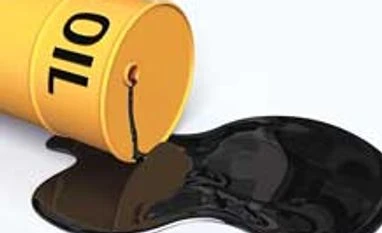The trading desk route was being considered, said an official, as the government wanted the oil companies to get the best deal possible. "We are examining if we can set up a trading desk rather than relying on term contracts. Things would be finalised by March-April," said a petroleum ministry official.
In the international oil market, most products are bought and sold through trading desks; the process is similar to that of forex trading at banks. The desk is manned by a licensed trader and trades take place instantly. Such a desk helps traders watch for arbitration possibilities and support agreements between companies and investors.
Trading through a desk, said players, would ensure better pricing, flexibility and opportunities. "While in the tendering system you get bogged by standard terms and conditions, which impacts the competition," said Naresh Nayyar, deputy chairman, Essar Oil, "a desk gives you flexibility and allows you to get the best-possible deals." A desk gives the flexibility to enter and exit markets whenever required, because operations are 24/7. But in a tender system, enter or exit is possible only at the time fixed in the contract.
Public sector oil companies import about 80 per cent of crude oil through term contracts. The balance is met via spot tenders, where companies import on the basis of their refinery requirements. In early 2000, there was a call to replace the tender system by free trading. But that change did not come.
OMCs do not enter a term contract for more than a year. The NOCs of crude oil exporting countries prefer to have term contracts of one year, as it gives suppliers and buyers the flexibility to revise the agreement each year. Also, NOCs prefer to not have long-term volume commitments due to the uncertainties in the crude oil market, domestic demand scenario, strategic needs and such factors.
Industry players said if oil was to be imported through a trading desk, the issue of transparency should be addressed. "Transparency will be an issue as a lot of trust is placed on the trader negotiating the deal. In a tender system, however, negotiation is not permitted," said the chairman and managing director of a public sector company.
In tendering, the seller charges a premium as he takes a risk, given the volatility in the crude oil market. But risk exposure is less in a trading desk system and the contract is not binding.
"Transparency would be there only if tenders are called," said a senior official of a private oil company. "The tender system has stood the test of transparency for many decades as it is a rigid system. If systems are tweaked there should be strong checks and balances."
To Indian companies, West Asia is a natural source of crude oil supply due to the proximity. However, OMCs have been making efforts to diversify crude oil import sources to Far East, West Africa, Mediterranean, Latin America, Angola, Brunei, Azerbaijan and Mexico. Low sulphur crude oil is imported mainly from the Far East, West Africa and Mediterranean regions.
)